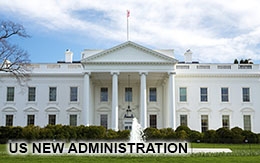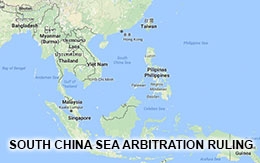Search result for "the US"
-
A Third Way for the US in the South China Sea
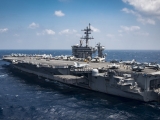 Category: CommentaryWashington should think beyond the dyad of balancing and appeasement. The struggle for a rule-based order in South China Sea is enduring and comprehensive, which requires greater persistence and stronger engagements on the part of the US and other regional countries.
Category: CommentaryWashington should think beyond the dyad of balancing and appeasement. The struggle for a rule-based order in South China Sea is enduring and comprehensive, which requires greater persistence and stronger engagements on the part of the US and other regional countries. -
Big Power Rivalry, ASEAN’s Dilemmas and Strategic Situation in the South China SeaCategory: Most prominent newsWhile Southeast Asia has been looking for the post-pandemic recovery the regional strategic situation continues to be defined by the rising tensions of big powers, primarily of China and the USA. These tensions are not new and emerge from the pre-pandemic years of growing regional complexity and conflicting visions of the regional order. With this international context in mind the paper aims to assess the South China Sea as a two-level problem. The dynamics at the first level is mainly defined by the ASEAN member states and at the second one – by China and the USA.
-
United States gets involved in the legal battle of diplomatic notes regarding the South China Sea
 Category: International LawThe US communication added a voice to the common position of Vietnam, Malaysia, Philippines and Indonesia on consideration of UNCLOS as the sole legal basis for defining, in a comprehensive and exhaustive manner, the scope of their respective maritime entitlements in the South China Sea.
Category: International LawThe US communication added a voice to the common position of Vietnam, Malaysia, Philippines and Indonesia on consideration of UNCLOS as the sole legal basis for defining, in a comprehensive and exhaustive manner, the scope of their respective maritime entitlements in the South China Sea. -
Extended Continental Shelf: A Renewed South China Sea Competition
 Category: International LawThe 2019 Malaysian partial submission renewed the legal exchanges over the South China Sea. Most of the claimants, except China and Brunei, through their statements and actions, expressed acceptance and support for the 2016 Tribunal Award. The legal status of South China Sea features will depend on the legal battle that has been triggered rather than with coercions or the use of force.
Category: International LawThe 2019 Malaysian partial submission renewed the legal exchanges over the South China Sea. Most of the claimants, except China and Brunei, through their statements and actions, expressed acceptance and support for the 2016 Tribunal Award. The legal status of South China Sea features will depend on the legal battle that has been triggered rather than with coercions or the use of force. -
Why Vanguard Bank and Why Now? Explaining Chinese Behavior in the South China Sea
Category: PoliticsDuring the course of my recent discussions with Vietnamese interlocutors, one question has recurred: after a period of prolonged quiet in Vietnam-China relations in the South China Sea (SCS), why has Beijing all of a sudden decided to take a stand at Vanguard Bank? And one could easily further ask why at the same time Beijing opened a new front by conducting a major military exercise at the Paracel Islands? I think there are several components to answering these questions. First, although Vanguard Bank represents the worst Vietnam-China tensions in the SCS since the Haiyang Shiyou 981 oil rig standoff in May ... -
De-combatising the Spratly Disputes
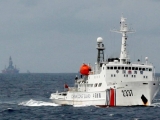 Category: Working PapersThe possibility of standoffs among the Spratly disputants and especially between China and the US may have increased with the ruling of the Arbitral Tribunal on 12 July 2016. The award has invalidated Beijing’s basis for Spratly patrols based on the nine-dotted line. At the same time it lends America new ground for Freedom of Navigation Operations (FONOPs) in the South China Sea (SCS). These are part of the reason for Beijing to reject the arbitration award.
Category: Working PapersThe possibility of standoffs among the Spratly disputants and especially between China and the US may have increased with the ruling of the Arbitral Tribunal on 12 July 2016. The award has invalidated Beijing’s basis for Spratly patrols based on the nine-dotted line. At the same time it lends America new ground for Freedom of Navigation Operations (FONOPs) in the South China Sea (SCS). These are part of the reason for Beijing to reject the arbitration award. -
The Potential Utility of International Law in Conflict Mitigation and Resolution in the South China Sea
 Category: Working PapersThe conflicts in the South China Sea have a substantial legal dimension. The disputes over territorial sovereignty and maritime rights are classical subjects of international law. UNCLOS provides a comprehensive framework of international rules on the maritime claims of the riparian States and the use of the South China Sea by nations generally. The compulsory dispute settlement system under the UNCLOS envisages an effective and rule-based process for mitigating and resolving maritime conflicts.
Category: Working PapersThe conflicts in the South China Sea have a substantial legal dimension. The disputes over territorial sovereignty and maritime rights are classical subjects of international law. UNCLOS provides a comprehensive framework of international rules on the maritime claims of the riparian States and the use of the South China Sea by nations generally. The compulsory dispute settlement system under the UNCLOS envisages an effective and rule-based process for mitigating and resolving maritime conflicts. -
The geopolitics of US-China naval rivalry in the Western Pacific
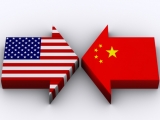 Category: CommentaryFor China, naval strategy is a means to force the US to adjust its geopolitical position in the Western Pacific to accommodate its rise. The Chinese intention is to edge the US out of the Western Pacific and to dislodge it from its current forward military presence, leaving the South China Sea and Taiwan to a Chinese sphere of influence.
Category: CommentaryFor China, naval strategy is a means to force the US to adjust its geopolitical position in the Western Pacific to accommodate its rise. The Chinese intention is to edge the US out of the Western Pacific and to dislodge it from its current forward military presence, leaving the South China Sea and Taiwan to a Chinese sphere of influence.
© 2016 Maritime Issues



